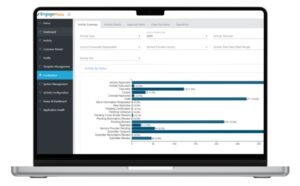Fixed Deposits are one of the most rewarding investment options and a secure haven where you earn a fixed interest rate on the deposited funds. To make the right investment decision, you should know different aspects related to the interest rates in India.
FD interest rates are the rates the bank pays you over time for your investment. The rate is pre-determined and does not change during investment. The banks decide upon these rates. To compare the different rates that they set up and find the right investment deal for you, here is what you should do:
- Research several banks
Start your research by gathering information on various banks offering FD and comparing them with the most reputed ones based on their customer service, ability to offer returns at competitive interest rates, and other parameters.
- Online comparison tools
You can use online portals that display side-by-side comparisons of FD rates offered by Indian banks to see the rates and terms offered by more than one entity.
- Tenures
The tenure of the FD may vary with each bank. Compare interest rates with respect to the tenure you are ready to tie in money.
- Compare interest rates
You need to compare the interest rates offered by different banks. A small difference in interest rates can significantly affect earnings over time. You can always determine which scheme is suitable for you by using the online Fixed Deposit calculator. If you are a senior citizen, check if the banks offer special rates for your age group. Senior citizen FD rates are usually higher than regular rates.
- Compounding of interest
Some banks let you take monthly, quarterly, or annual payments of interest. Choose which one is most handy according to your financial requirements and goals.
- Pre-closure penalties
You should always check the penalty imposed by the bank in case you plan to withdraw funds before maturity. Of course, opt for a bank with a lower penalty, as you never know when a medical condition or a family emergency may arise.
- Safety and credibility
Make sure that the bank you choose is safe and reliable. Find some ratings and reviews and the creditworthiness of the bank. Some banks have all other facilities such as overdraft, Loan Against FD or linking FD with other accounts. Assess additional features.
- Tax consequences
Consider the tax implication of FD interest earned. Several banks offer Tax-Saving FDs, which deliver advantages under Section 80C of the Income Tax Act.
- Compounding of interest
Know the compounding frequency of interest. The more often a compounding is done, the better it is for your investment.
Conclusion
Banks determine the FD rates through internal policies and market conditions. The tenure maintained for it in India is at least seven days to 10 years.





